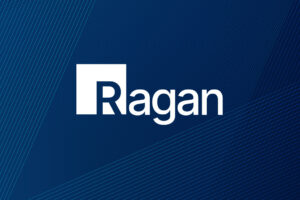Avoiding assumptions when communicating RTO policies to Gen Z
Don’t assume all members of your workforce have been to an office before.

Lauren King is a senior associate at Mission North focused on tech and innovation storytelling across consumer, enterprise, and life science and health industries.
Over the past three years, we’ve witnessed the resurgence of ‘pre-pandemic’ life. From travel to live entertainment, people are eager to reclaim the experiences we once cherished, including swapping sweatsuits for pantsuits and returning to in-office routines.
I vividly remember the first time I heard the term “return to office” (RTO) because I looked up from my laptop – the same screen I watched my college graduation on nearly two years prior – and said “Return? Bold of you to assume I’ve ever worked in an office before.” This is quite a normal occurrence (talking to myself in my room behind a computer screen that is) as I belong to Gen Z, the generation whose greatest commonality lies in being ‘extremely online.’
While some companies have adopted flexible work models, others are doubling down on strict in-office mandates. Industry giants like IBM, Google, and JP Morgan have set the tone with RTO policies that make it increasingly clear that, unlike that girls trip to Cabo, the return-to-office is anything but optional. This shift is significant, considering that a sizable chunk of remote-capable workers – 35% according to Pew Research Center – were fully remote in 2023, with another 41% on hybrid schedules.
My generation – the oldest of whom have jobs and mortgages, while the youngest are still teenagers – is often viewed as the generation raised by the internet, where online classes, virtual graduations, and remote internships are the norm. So, forgive us if the idea of an office feels like stepping into uncharted territory – it’s a realm we’ve yet to explore.
In order to effectively reel in those who have never experienced the office, executives must adapt their RTO strategies to fit a generation characterized by its ability to use the internet as a type of security blanket to protect against global unrest, financial crises, educational interruptions, and heightened levels of anxiety and depression.
Here’s how to start.
Motivate vs. mandate.
Shifting the conversation from mandates to motivation is key. Rather than a stern directive, present RTO as a chance to shape one’s career journey. Gen Z thrives on individualism, but we crave community. Emphasize the potential for meaningful connections beyond work tasks. Clear communication about office culture and perks like free lunches can also make the transition smoother. After all, the lure of a complimentary meal transcends generational boundaries.
Be ready to answer ’why’.
When navigating RTO policies, it’s essential for employers to be prepared to answer the “why?” Gen Z is known for its inquisitive nature and desire for purpose-driven work, and we often seek clarity and transparency in organizational decisions.I If companies are asking to venture into unfamiliar territory like RTO , they must be ready to articulate the rationale for this decision.
Explaining how the RTO policies align with the company’s values, contribute to larger business goals, or address economic needs can help Gen Z employees understand the reasoning behind the decision. Whether it’s fostering collaboration, creating opportunities for mentorship, or ensuring operational efficiency, providing a clear rationale demonstrates authenticity and cultivates trust.
Ask for input.
There is no one-size-fits-all approach to any communications strategy, whether external or internal. When shaping RTO policies, consider your audience and recognize the diverse needs of individuals, particularly Gen Z employees who might find themselves feeling pressured to enter a new environment in a time of economic uncertainty and mass layoffs.
By incorporating diverse perspectives into RTO policies, employers can create a more flexible and adaptable work environment that meets the needs of all employees, ultimately leading to higher levels of engagement, productivity, and satisfaction. This inclusive approach fosters a sense of belonging and empowerment among Gen Z employees and benefits the organization.
Shaping an RTO policy that resonates with Gen Z employees requires a thoughtful and inclusive approach prioritizing transparency. Employers can foster a sense of inclusivity, trust, and purpose by actively soliciting input from all employees, including Gen Z, and being prepared to articulate the rationale behind RTO decisions.
Framing RTO discussions as opportunities for personal growth, community building, and alignment with company values can go a long way with younger employees and will in turn facilitate a smooth transition back to the office.






